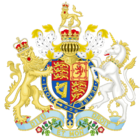Local Government Board facts for kids
| Act of Parliament | |

|
|
| Long title | An Act for constituting a Local Government Board, and vesting therein certain functions of the Secretary of State and Privy Council concerning the Public Health and Local Government, together with the powers and duties of the Poor Law Board. |
|---|---|
| Citation | 34 & 35 Vict. c. 70 |
| Dates | |
| Royal assent | 14 August 1871 |
|
Status: Repealed
|
|
The Local Government Board (LGB) was an important government group in England and Wales from 1871 to 1919. Its main job was to oversee how local areas were run. Think of it like a supervisor for towns and cities across the country.
The LGB was created by a law called the Local Government Board Act 1871. This new board took over many important tasks. It handled public health and local government duties. These duties used to belong to the Home Secretary and the Privy Council. The LGB also took over all the work of the Poor Law Board, which was then closed down.
Later, in 1919, the LGB changed into a new department. This new department was called the Ministry of Health.
Contents
Who Ran the Local Government Board?
The Local Government Board was led by a President. The British monarch chose this person. The President was usually a cabinet minister. This meant they were a very important government official.
The President could also be a member of the House of Commons. Other important people were also part of the board. These included the Lord President of the Council and the Chancellor of the Exchequer. However, the President made most of the decisions.
The President was helped by a Parliamentary Secretary. This person was also a member of the House of Commons. A permanent secretary, who was a civil servant, also helped. The everyday work of the LGB was done by its paid staff.
The Board's Staff
The Local Government Board was allowed to hire many people. These included secretaries, inspectors, and clerks. They needed approval from the Treasury to do this. The salaries for these staff members had to be approved by Parliament.
When the LGB was first formed, staff from other groups joined it. These groups included the Poor Law Board and the Medical Department of the Privy Council. This helped the new board start its work right away.
What Did the Board Do?
The main goal of the LGB was to supervise laws. These laws were about public health, helping the poor, and local government. The law that created the board listed many duties it took over.
Helping with Public Health
The LGB took over tasks related to public health. This included keeping records of births, deaths, and marriages. They also worked on preventing diseases. They oversaw vaccination programs.
Managing Local Areas
The board was responsible for local government matters. This included things like drainage and sanitation. They also dealt with public improvements in towns. They helped with building baths, wash-houses, and homes for workers.
Supporting the Poor
The LGB took over all the duties of the Poor Law Board. This meant they were in charge of laws related to helping people who were poor. They managed the systems set up to provide relief and support.
In 1872, the board gained even more responsibilities. They started managing laws about roads and water supply in London. They also oversaw the Alkali Act, which dealt with air pollution from factories.
How the Board Worked
The LGB did its work in several important ways.
Making Rules and Orders
The board could create general rules and regulations. These rules helped to enforce the laws it was responsible for. These rules had the same legal power as those made by a government minister.
Checking on Local Councils
The LGB had strong powers to regulate local groups. The board's inspectors visited local authorities. They made sure that these local groups were doing their jobs well. They also helped solve disagreements between local councils and citizens.
Making Important Decisions
The board could make legally binding decisions. These decisions affected the groups it supervised. For example, they could approve changes to local boundaries. They could also approve local councils taking out loans or gaining new powers. These decisions, called provisional orders, needed Parliament's final approval.
Keeping Track of Money
The board collected and published financial summaries every year. These summaries showed how each local authority spent its money. The LGB also appointed auditors to check the accounts. They provided statistics to Parliament when needed.
Why Was the Board Abolished?
The Ministry of Health Act 1919 officially ended the Local Government Board. All of its powers and duties were moved to a new department. This new department was called the Ministry of Health.
The Ministry of Health also took over duties from other groups. These included the Insurance Commissioners and the Board of Education. It also took on duties related to midwives and children's welfare. Most of the Local Government Board's staff moved to this new ministry.
See Also
- Local Government Board for Scotland, a similar group in Scotland from 1894 to 1919
- Local Government Board for Ireland, established in 1872 and ended in 1922.
 | Ernest Everett Just |
 | Mary Jackson |
 | Emmett Chappelle |
 | Marie Maynard Daly |

